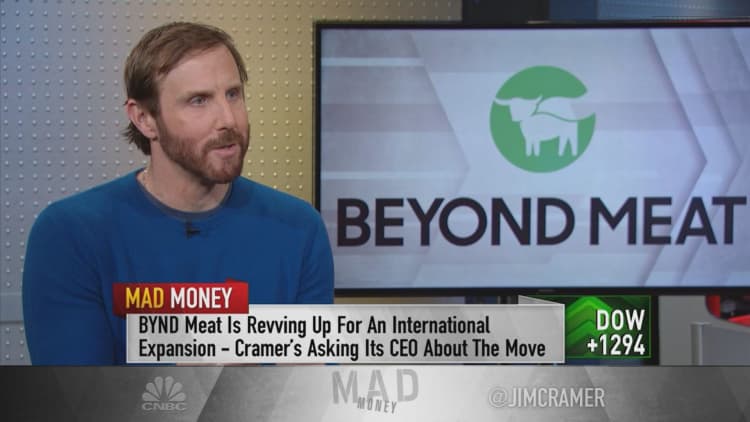Impossible Foods is slashing wholesale prices on its products by 15% on average.
The maker of the meatless Impossible Burger said Tuesday that the price cut is thanks to manufacturing efficiencies and achieving greater economies of scale. The privately held company does not release its financial results. Publicly traded rival Beyond Meat saw its revenue triple in the fourth quarter compared to a year earlier as more restaurant chains began selling its meat-free burgers and sausage patties.
As consumers seek to eat less meat, they've been turning to Beyond's and Impossible's more expensive meat alternatives. But the higher price point is keeping some from trying the products. In January, Restaurant Brands International's Burger King added the meatless Impossible Whopper to its 2 for $6 promotion.
"We know that the premium price point has limited some guests from trying the Impossible Whopper," Restaurant Brands CEO Jose Cil said in early February on the company's fourth-quarter earnings call.
It is unclear how Impossible's price cuts for distributors will impact what consumers pay for an Impossible Burger in restaurants.
Beyond is aiming for price parity with animal meat in at least one of its product categories by 2024, CEO Ethan Brown told analysts last week.
Impossible and Beyond are also facing greater competition from traditional food companies and meat producers that already benefit from efficient supply chains and massive scale. Nestle, Perdue and Tyson Foods have rolled out their own plant-based meat products in recent months. Brown said on Beyond's earnings call that the company discounted less than it expected in its fourth quarter, despite the new competition.
Shares of Beyond, which has a market value of $6.19 billion, jumped more than 5% in premarket trading. The stock, which has became known for volatile swings, is up 34% so far in 2020.



